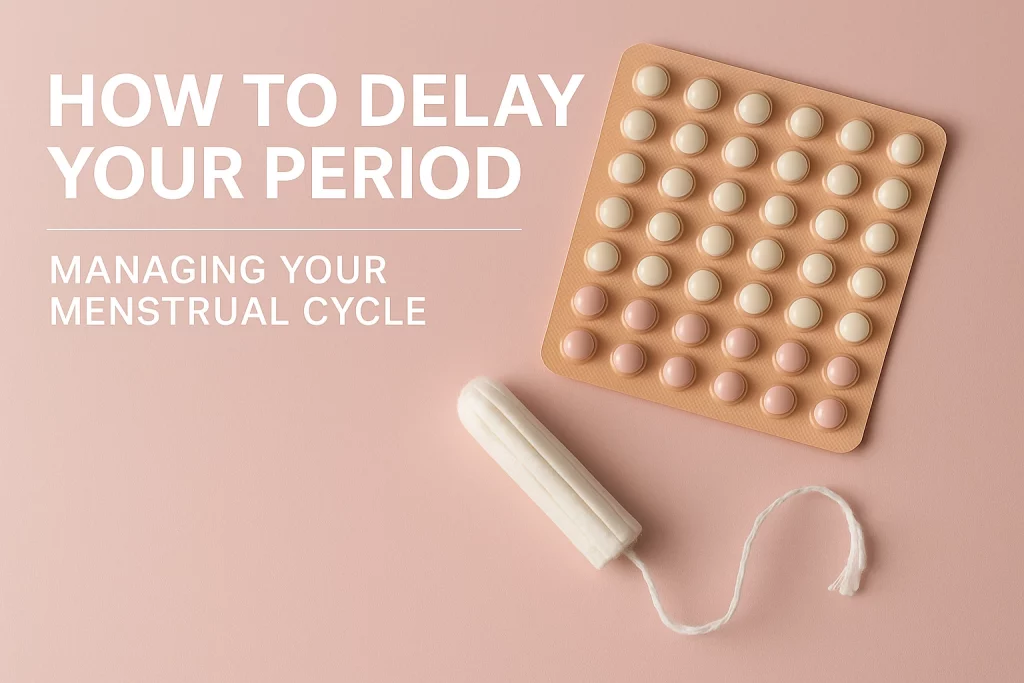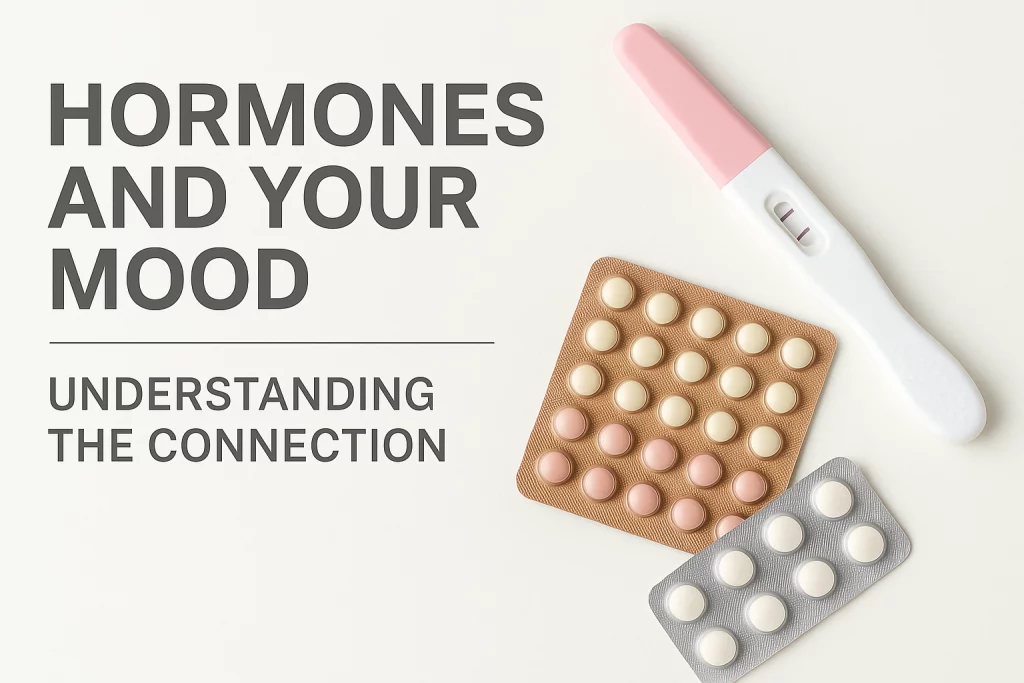Periods are a natural part of life, but they don’t always arrive at the most convenient time. Whether you’re planning a holiday, attending a special event, or managing heavy or painful periods, there are safe and effective options available to delay your period or ease monthly discomfort.
This guide explains how period delay works, what causes menstrual pain, and when to seek medical support.
Can You Delay Your Period Safely?
Yes, with the right treatment, it’s medically safe to delay your period for a short time. This is most often done using a hormone-based medication that temporarily holds off your menstrual cycle.
How period delay medication works:
- Contains a synthetic hormone called norethisterone
- Taken three times a day, starting around 3 days before your period is due
- Allows you to delay your period for up to 17 days, depending on the course
This option is commonly prescribed and suitable for many women, but it’s not advised for everyone. An assessment helps determine if it’s right for you.
Find out if period delay is suitable for you here
Why Do Periods Cause Discomfort?
While some monthly discomfort is normal, severe symptoms can affect daily life and may indicate underlying conditions like endometriosis, fibroids or hormonal imbalances.
Common menstrual symptoms include:
- Cramping or pelvic pain
- Headaches or fatigue
- Bloating
- Mood swings or irritability
- Heavy bleeding
These symptoms are typically linked to hormonal changes in the days leading up to and during menstruation.
When symptoms become disruptive, medical guidance can help.
Period Delay vs. Contraception: What’s the Difference?
While some contraceptive methods can also control or delay periods, period delay medication is not a form of birth control.
| Feature | Period Delay Tablets | Contraceptive Pill |
|---|---|---|
| Purpose | Delay bleeding temporarily | Prevent pregnancy and regulate cycle |
| Duration of Use | Short term (up to 17 days) | Long term or monthly |
| Contains Oestrogen | No | Often yes |
Are There Any Side Effects?
Most women tolerate period delay medication well. Possible side effects may include:
- Nausea
- Headaches
- Breast tenderness
- Spotting or breakthrough bleeding (rare)
Women with a history of blood clots, liver disease or certain conditions may not be eligible.
Always complete a consultation before starting any hormone-based treatment.
Managing Menstrual Pain and Symptoms
If your periods are painful, heavy, or irregular, support is available. Lifestyle and medical options can help:
Options to explore:
- Anti-inflammatory medication (like ibuprofen)
- Hormonal contraceptives
- Iron supplements for heavy periods
- Pelvic ultrasound or hormone testing (in some cases)
Start a private consultation here to discuss your symptoms and treatment options in a discreet, supportive setting.
When to Speak to a Healthcare Professional
You should consider medical advice if:
- Your periods are so painful they affect work or daily life
- Bleeding is unusually heavy or lasts more than 7 days
- You experience spotting between periods regularly
- You’re considering delaying your period and unsure if it’s safe for you
The right treatment can improve your quality of life and help you take control of your cycle.


